B Vitamins and Brain Chemistry: Supporting Energy and Emotional Balance
Introduction
When life feels like it’s running at full speed — deadlines, screens, stress, and sleepless nights — your brain and body rely on one quiet, essential group of nutrients to keep up: the B vitamins.
Often overlooked, B vitamins play a central role in everything from energy metabolism ⚙️ to neurotransmitter balance 🧠. Deficiencies can leave you feeling foggy, anxious, fatigued, or emotionally unstable — even when everything else seems “fine.”
In this article, we’ll explore how the eight essential B vitamins support brain chemistry, energy production, and emotional health, what deficiency signs to watch for, and how to use food and supplements to restore balance naturally.
Looking for supplements for Brain Fog? Click here.
🌿 The B-Complex Family: An Overview
The term “B-complex” refers to a group of eight water-soluble vitamins, each with unique yet interconnected roles in the brain and body:
| Vitamin | Name | Key Brain Roles |
|---|---|---|
| B1 | Thiamine | Energy metabolism, nerve function |
| B2 | Riboflavin | Mitochondrial energy, antioxidant protection |
| B3 | Niacin | NAD⁺ production, serotonin synthesis |
| B5 | Pantothenic Acid | Hormone synthesis, stress regulation |
| B6 | Pyridoxine | Neurotransmitter formation (serotonin, dopamine, GABA) |
| B7 | Biotin | Glucose metabolism, fatty acid synthesis |
| B9 | Folate | DNA methylation, serotonin and dopamine balance |
| B12 | Cobalamin | Myelin protection, mood and cognition support |
Together, these vitamins power the brain’s metabolic engine and emotional balance system — forming the foundation for clear thinking, calm mood, and steady energy.
🧠 Why B Vitamins Are Essential for Brain Chemistry
Your brain is an energy-hungry organ — consuming about 20% of your total daily calories despite being only 2% of your body weight. To keep up, it depends on a steady supply of B vitamins to convert food into usable energy (ATP) and regulate the chemical messengers that shape your thoughts and feelings.
🌬️ Neurotransmitter Production
B vitamins — especially B6, B9, and B12 — are required for synthesizing neurotransmitters like:
Serotonin: The “calm and content” chemical
Dopamine: The “motivation and reward” chemical
GABA: The “relaxation” neurotransmitter
Without enough B vitamins, neurotransmitter synthesis slows down, leading to low mood, irritability, or anxiety.
Looking for supplements for Brain Fog? Click here.
⚙️ Methylation and Gene Expression
Folate (B9) and Vitamin B12 are crucial for methylation, a biochemical process that regulates gene activity, detoxification, and the breakdown of homocysteine — a compound that can damage neurons if elevated.
💡 High homocysteine = increased depression and cognitive decline risk
💡 Balanced methylation = optimal serotonin and dopamine metabolism
🔋 Mitochondrial Energy Support
B1, B2, B3, and B5 are vital for ATP production — the molecule that powers every brain cell. Mitochondrial dysfunction is linked to fatigue, brain fog, and mood instability, so optimizing B-vitamin intake can enhance both energy and focus.
😴 Signs of B Vitamin Deficiency
Even mild deficiencies can have noticeable mental and emotional effects.
🧩 Common Symptoms Include:
Persistent fatigue or brain fog
Low mood or anxiety
Poor concentration and memory
Irritability or emotional reactivity
Tingling or numbness (B12 deficiency)
Sleep disturbances
Poor stress tolerance
Many factors deplete B vitamins — stress, alcohol, caffeine, certain medications (like birth control or metformin), and digestive issues that impair absorption.
💬 In today’s fast-paced world, mild B deficiencies are surprisingly common — especially B6, B9, and B12.
🌸 B Vitamins and Emotional Health
🌿 B6 (Pyridoxine): The Mood Balancer
B6 is a key cofactor in the synthesis of serotonin, dopamine, and GABA — three neurotransmitters that shape your mood, motivation, and ability to relax.
🧠 Benefits
Improves stress resilience
Reduces anxiety and irritability
Supports balanced mood in PMS and perinatal depression
🔬 Research Spotlight
A 2022 Human Psychopharmacology study found that daily supplementation of 100 mg B6 increased GABA levels in the brain and reduced anxiety symptoms.
💊 Dosage: 25–100 mg/day (often included in a B-complex)
💛 B9 (Folate): The Serotonin Builder
Folate is critical for methylation and the conversion of tryptophan into serotonin. Low folate is strongly linked to depression and poor response to antidepressants.
🧠 Benefits
Lifts mood and enhances emotional stability
Supports healthy pregnancy and brain development
Helps metabolize homocysteine
🔬 Research Spotlight
A Journal of Affective Disorders review found that people with low folate levels are twice as likely to experience depression.
💊 Dosage: 400–800 mcg/day (look for methylated form L-methylfolate if you have MTHFR gene variants).
🧬 B12 (Cobalamin): The Energizer and Protector
Vitamin B12 protects your brain’s myelin sheath (the insulation around nerves) and works alongside folate to regulate mood and cognition.
🧠 Benefits
Boosts energy and motivation
Improves memory and focus
Reduces depressive symptoms and irritability
🔬 Research Spotlight
A Journal of Psychopharmacology study found that low B12 levels predict poorer outcomes in depression treatment — even with antidepressants.
💊 Dosage: 250–1000 mcg/day (methylcobalamin or adenosylcobalamin preferred).
💬 Older adults and vegans are especially at risk for deficiency.
⚡ B1, B2, B3, B5: The Energy Foundation
These vitamins power your mitochondria, ensuring steady energy for brain function and emotional regulation.
| Vitamin | Function | Key Benefits |
|---|---|---|
| B1 (Thiamine) | Converts carbs to brain fuel | Improves fatigue and mental clarity |
| B2 (Riboflavin) | Generates cellular energy | Antioxidant and migraine prevention |
| B3 (Niacin) | Builds NAD⁺, essential for brain energy | Supports serotonin production |
| B5 (Pantothenic Acid) | Creates acetylcholine and cortisol | Enhances focus, balances stress response |
💬 Deficiencies here often show up as fatigue, brain fog, and low motivation.
🌾 B Vitamins and Stress
When you’re under chronic stress, your adrenal glands — which regulate cortisol and adrenaline — burn through B vitamins faster.
🌿 The Stress Loop
Stress increases cortisol →
Cortisol increases energy demand →
B vitamins get depleted →
Fatigue and mood swings worsen
💡 Supplementing with a balanced B-complex helps restore adrenal function, normalize cortisol rhythms, and enhance resilience to emotional stress.
🧘 The Role of B Vitamins in Anxiety and Depression

Numerous studies link B-vitamin status with emotional disorders:
People with low B12 or folate levels are more likely to experience depression.
B6 deficiency impairs GABA synthesis, increasing anxiety.
Combined B-complex supplementation has been shown to lower perceived stress and improve mood in both clinical and healthy populations.
🧠 Research Highlight
A 2019 Nutrients study found that adults taking a B-complex for 90 days showed:
16% reduction in stress levels
18% improvement in mood
Better cognitive performance under pressure
💬 The takeaway: when the nervous system has enough “fuel,” emotional regulation becomes easier.
🌞 B Vitamins and Energy Metabolism
At the core of every thought and feeling lies cellular energy — and B vitamins drive every step of that process.
⚙️ How It Works
B1, B2, B3, and B5 convert carbohydrates, fats, and proteins into ATP.
B6 helps transport amino acids into energy pathways.
B12 and Folate ensure red blood cells deliver oxygen efficiently to the brain.
🧩 Deficiency = sluggish mitochondria → brain fog, low energy, and mental fatigue.
💡 Supporting energy metabolism with B vitamins not only boosts focus but also prevents the energy “crashes” that often fuel irritability or sadness.
🧬 Genetic Factors: The MTHFR Connection
Some people have variations in the MTHFR gene, which makes it harder for the body to activate folate and B12 for methylation.
Symptoms may include:
Chronic fatigue
Depression or anxiety
Poor response to antidepressants
High homocysteine levels
💊 Solution: Use methylated forms like L-methylfolate (B9) and methylcobalamin (B12). These bypass genetic bottlenecks and directly support neurotransmitter synthesis.
🌿 How to Choose a Quality B-Complex Supplement
Not all B-complex formulas are created equal. Here’s what to look for:
✅ Active forms
B9 as methylfolate (5-MTHF)
B12 as methylcobalamin
B6 as pyridoxal-5-phosphate (P5P)
✅ Balanced doses
Avoid formulas with mega-doses (over 50x daily value) unless prescribed.
✅ Clean ingredients
No synthetic dyes or unnecessary fillers.
✅ Food-based or coenzyme blends
Better absorption and gentler on the stomach.
💬 Tip: Take your B-complex with breakfast or lunch for sustained energy throughout the day.
🧘 Combining B Vitamins with Other Mood Support Nutrients
B vitamins work best as part of a synergistic nutrient stack that supports neurotransmitter function and energy production.
| Nutrient | Synergy | Benefit |
|---|---|---|
| Magnesium | Works with B6 | Enhances calm and stress resilience |
| Omega-3 Fatty Acids | Support serotonin signaling | Reduce inflammation and improve mood |
| Vitamin D3 | Works with B12 | Regulates serotonin and dopamine |
| CoQ10 | Supports mitochondrial ATP | Boosts energy and cognitive function |
| NAC | Increases glutathione | Protects brain cells from oxidative stress |
✨ Together, these nutrients provide a foundation for long-term emotional and mental vitality.
🌬️ Breathwork and Stress-Buffering Synergy

Even with optimal nutrition, chronic stress can drain your nervous system. Combining B-vitamin support with breathwork creates a powerful body-brain synergy.
🌫️ Try This “Reset Breath”:
Inhale deeply through your nose for 4 seconds.
Hold for 2 seconds.
Exhale slowly through your mouth for 6 seconds.
Repeat for 3–5 minutes.
This pattern stimulates the vagus nerve, lowers cortisol, and enhances oxygen delivery — helping your B vitamins do their job more effectively.
💬 Think of breathwork as giving your nervous system permission to absorb calm.
Want to try Breathwork? Click Here.
🧩 B Vitamins and Cognitive Clarity
Several studies link optimal B-vitamin levels to memory, focus, and neuroprotection.
B12 and Folate: Protect against age-related cognitive decline.
B1 and B3: Improve mental clarity by stabilizing glucose metabolism.
B6: Supports attention and reduces irritability.
🧠 Clinical Evidence
A 2017 Frontiers in Aging Neuroscience study found that older adults with higher B12 and folate levels had less brain shrinkage and better cognitive performance.
💡 Translation: B vitamins keep neurons firing efficiently — essential for emotional and cognitive sharpness at any age.
🍽️ Natural Food Sources of B Vitamins
Getting B vitamins from food ensures a steady supply and better absorption.
🥗 Best Sources
B1 (Thiamine): Whole grains, legumes, sunflower seeds
B2 (Riboflavin): Eggs, almonds, milk, spinach
B3 (Niacin): Chicken, tuna, peanuts, mushrooms
B5 (Pantothenic Acid): Avocados, sweet potatoes, lentils
B6 (Pyridoxine): Bananas, salmon, chickpeas, potatoes
B7 (Biotin): Eggs, nuts, seeds, cauliflower
B9 (Folate): Leafy greens, lentils, asparagus, citrus
B12 (Cobalamin): Fish, eggs, meat, dairy, fortified plant milks
🌿 For vegans: Supplement with B12 and possibly folate to prevent deficiency.
💬 Common Myths About B Vitamins
❌ Myth 1: You can get all your B vitamins from diet alone.
✅ Truth: Modern diets, stress, and medications can deplete levels — supplementation often helps.
❌ Myth 2: Taking B vitamins gives you instant energy.
✅ Truth: They support energy production, not stimulation. Benefits build gradually.
❌ Myth 3: More is always better.
✅ Truth: Excessive doses can cause imbalance or overstimulation — especially with B3 and B6.
🌈 Real-World Story
Case Example:
David, 38, worked long hours and drank multiple coffees daily. Despite sleeping 8 hours, he woke up tired and irritable. His doctor found low B12 and folate levels.
After 8 weeks of taking a methylated B-complex with breakfast, David reported:
Clearer thinking
Improved energy
Less irritability and anxiety
💬 “It felt like someone turned the lights back on in my brain.”
🧩 When to Test for Deficiencies
If you experience chronic fatigue, brain fog, or mood swings, ask your doctor about:
Serum B12 and folate levels
Homocysteine (functional marker)
MMA (Methylmalonic acid) for true B12 deficiency
Low-normal levels may still cause symptoms — optimal B12 often sits above 500 pg/mL.
💡 Putting It All Together
The B vitamins form a neurochemical orchestra — each one contributing to your brain’s energy, focus, and emotional harmony.
🌿 The Balanced Approach
Eat a varied, whole-food diet.
Manage stress with breathwork and mindfulness.
Supplement with a high-quality methylated B-complex if needed.
Pair with magnesium, omega-3s, and adequate sleep.
💛 When these pieces come together, you support not just mood and energy — but long-term resilience and clarity.
⚖️ Key Takeaways
✅ B vitamins fuel brain energy and neurotransmitter production.
✅ Deficiencies are linked to depression, anxiety, and fatigue.
✅ Active (methylated) forms offer better absorption and mood support.
✅ Combine with magnesium, omega-3s, and balanced lifestyle habits for optimal results.
✅ Food sources remain essential — supplements simply fill the gaps.
🌿 B vitamins don’t just give energy — they give balance.
📚 References
Kennedy, D. O. (2016). “B vitamins and the brain: Mechanisms, dose and efficacy.” Nutrients, 8(2), 68.
Lewis, J. E., et al. (2019). “Effects of B-vitamin supplementation on mood and cognition.” Nutrients, 11(9), 2232.
Young, L. M., et al. (2022). “Vitamin B6 supplementation reduces anxiety.” Human Psychopharmacology, 37(4), e2805.
Reynolds, E. (2006). “Vitamin B12, folic acid, and the nervous system.” The Lancet Neurology, 5(11), 949–960.
Almeida, O. P., et al. (2010). “Homocysteine and depression in older adults.” American Journal of Geriatric Psychiatry, 18(7), 561–569.
Smith, A. D., et al. (2010). “Homocysteine-lowering by B vitamins slows brain atrophy.” PNAS, 107(17), 8057–8062.
Rucklidge, J. J., et al. (2014). “Vitamin and mineral supplementation improves mood and stress.” Psychiatry Research, 220(1–2), 408–414.
Related Posts
-

Nootropics That Promote Calm and Rest
Explore the world of calming nootropics — natural brain enhancers that promote relaxation, better focus, and deeper rest. Learn how L-Theanine, magnesium, ashwagandha, and other adaptogens help balance your nervous system, reduce stress, and support restorative sleep.
-

Best Natural Supplement Stack for Sleep
Discover the best natural supplement stack for deep, restorative sleep. Learn how nutrients like magnesium, L-theanine, glycine, and calming herbs such as chamomile and ashwagandha work together to relax your body, calm your mind, and improve sleep quality—naturally and safely.
-

Combining L-Theanine and Magnesium for Sleep: A Calm Night, Naturally
Discover how combining L-Theanine and Magnesium can help you drift into deep, restorative sleep. Learn how this natural duo calms the mind, relaxes the body, and supports your nervous system—without grogginess the next morning.
-

How to Sleep Better After Intense Workouts
Struggling to fall asleep after a tough workout? Learn how to optimize your post-training recovery with nutrition, hydration, and science-backed sleep strategies. Discover how to calm your nervous system, balance hormones, and wake up fully recharged for your next session.
-

Ashwagandha and Valerian: A Bedtime Combo for Deep Rest and Emotional Reset
Discover the calming synergy of Ashwagandha and Valerian root, two natural sleep aids that help quiet the mind, ease anxiety, and promote deeper rest. Learn how this herbal duo supports the nervous system, balances stress hormones, and restores emotional peace — without next-day grogginess.
-

How to Create a Resilience-Boosting Diet
Discover how to build emotional and physical strength from the inside out with a resilience-boosting diet 🍎. Learn which foods stabilize your mood, how supplements like magnesium and omega-3s strengthen your stress response, and why pairing nutrition with breathwork and therapy creates lasting calm, focus, and vitality 🌿💪.
-

Best Teas and Herbal Blends for Calmness: Nature’s Way to Restore Inner Peace
Ashwagandha, the ancient adaptogenic herb, helps your body find balance during stress. Known as “Indian ginseng,” it supports cortisol regulation, boosts energy, and restores calm clarity. Discover how this powerful root promotes resilience, emotional balance, and steady vitality — one cup at a time. 🌸
-

Parenting and Emotional Strength: How to Raise Children Without Losing Yourself
Empathy is the bridge that connects hearts — the quiet power to understand, feel, and support another’s emotions without judgment. Learn how empathy strengthens relationships, enhances communication, and cultivates deeper compassion in everyday life. 🌿
-

How to Bounce Back from Public Failure: Reclaiming Confidence, Purpose, and Power
Visualization is more than imagination — it’s brain training for resilience. By picturing calm, success, or healing, you activate the same neural pathways as real experience. Learn how daily visualization rewires your brain for confidence, emotional balance, and recovery from stress. ✨
-

Coping with Financial Stress Through Resilience: How to Stay Grounded When Money Feels Tight
Body awareness is the foundation of emotional resilience. By tuning into your body’s signals — tension, fatigue, or calm — you learn to recognize stress before it overwhelms you. Discover how mindfulness, gentle movement, and breathwork can deepen your connection with your body and restore balance from the inside out. 🧘
-

How to Stay Positive During Chronic Illness: A Guide to Emotional Strength and Hope
Creativity is more than art — it’s a form of healing. Whether through painting, writing, music, or small acts of expression, creativity helps release emotion, calm the nervous system, and reconnect you to joy. Discover how to use creativity as a tool for emotional balance, resilience, and self-discovery. 🌿
-

Resilience Tips for Caregivers: How to Stay Strong While Caring for Others
Joy isn’t the absence of pain — it’s the quiet strength to find light even in challenging times. Cultivating joy through small daily moments restores balance, releases stress, and reminds you of life’s beauty. Learn how to reconnect with authentic happiness, rebuild emotional energy, and nurture your nervous system through gratitude, presence, and play. 🌿
-

Building Resilience After a Breakup: How to Heal, Rebuild, and Rise Stronger
Social connection is one of the strongest predictors of emotional resilience. During difficult times, genuine relationships act as anchors — calming the nervous system, reducing stress hormones, and helping you regain perspective. Learn how cultivating real human connection can strengthen your mind, heart, and overall well-being. 🌿
-

How to Stay Emotionally Strong During Job Loss
Your emotions are powered by brain chemistry — a delicate balance of neurotransmitters like serotonin, dopamine, and cortisol. When these chemicals work in harmony, you feel calm, focused, and resilient. Learn how daily habits, nutrition, and mindfulness can support your brain chemistry and boost emotional well-being naturally. 🌿
-

The Role of Hormones in Emotional Stability: How Your Chemistry Shapes Your Calm
Hormones shape more than your body — they shape your emotions, resilience, and sense of calm. From cortisol to serotonin, these chemical messengers influence how you react to stress, connect with others, and recover from challenges. Learn how to balance your hormones naturally to build lasting emotional stability and harmony within. 💫
-

Mitochondria and Emotional Energy: The Cellular Power Behind Your Mood
Breathwork is one of the most powerful tools for emotional regulation and cellular balance. Through intentional breathing, you can calm your nervous system, increase oxygen flow to the brain, and even support mitochondrial energy. Learn how conscious breathing connects body and mind — transforming stress into presence and emotional strength. 🌿
-

Inflammation and Its Impact on Mood Resilience: The Silent Link Between Body and Mind
Inflammation doesn’t just affect the body — it impacts the mind. Chronic inflammation alters brain chemistry, depletes serotonin, and makes emotional recovery harder. Learn how calming inflammation through nutrition, mindfulness, and sleep can restore balance, resilience, and a renewed sense of emotional strength. 💫
-

How Antioxidants Protect Emotional Well-being: The Hidden Link Between Oxidative Stress and Mental Health
Antioxidants do more than protect your body — they defend your mind. By neutralizing oxidative stress, antioxidants support serotonin, dopamine, and brain energy pathways that keep you calm, focused, and emotionally balanced. Discover how foods like berries, green tea, and dark chocolate nourish your brain, boost mood, and strengthen resilience from the inside out. 🌿✨
-

The HPA Axis and Emotional Health: The Hidden Bridge Between Stress and Mind
Neuroplasticity — the brain’s ability to rewire and adapt — is the foundation of emotional healing and resilience. When you face stress, trauma, or change, your neural pathways can reshape themselves to support new patterns of calm, focus, and self-awareness. Learn how daily practices like mindfulness, therapy, and breathwork strengthen neuroplasticity to transform emotional pain into personal growth. 🌸
-

Why Cortisol Control Is Key to Resilience: Mastering Stress to Build Emotional Strength
Controlling cortisol — the body’s main stress hormone — is the secret to lasting resilience. When cortisol levels stay balanced, your mind becomes clearer, emotions steadier, and energy more sustainable. Learn how breathwork, mindset shifts, adaptogens, and daily rhythms can help you calm your stress response and build true inner strength. 🌞💪
-

Dopamine’s Influence on Motivation and Recovery: Reigniting Drive and Balance
Healthy relationships are the foundation of emotional balance and resilience. Whether romantic, familial, or platonic, genuine connection releases dopamine, serotonin, and oxytocin — the brain’s “bonding trio” — helping us feel secure, motivated, and seen. Learn how trust, empathy, and communication not only strengthen your connections but also reshape your nervous system for deeper emotional well-being. 🌿🤝
-

The Role of Serotonin in Resilience: How This “Mood Molecule” Shapes Emotional Strength
Serotonin — often called the “resilience molecule” — plays a vital role in how we handle stress, regulate mood, and recover from emotional challenges. Beyond happiness, this powerful neurotransmitter helps balance the gut-brain axis, stabilize the nervous system, and support emotional flexibility. Learn how nutrition, sunlight, mindfulness, and adaptogens can naturally boost serotonin and strengthen your emotional resilience. 🌞🧠
-

How Neuroplasticity Supports Emotional Growth: Rewiring the Brain for Resilience
Neuroplasticity is the brain’s built-in power to grow, adapt, and heal — and it’s the foundation of emotional transformation. Every mindful breath, compassionate act, or reframed thought strengthens new neural pathways that support resilience and self-awareness. Learn how your brain rewires through daily habits, helping you turn emotional challenges into opportunities for growth and calm. 🌿
-

Tai Chi and Adaptogens for Mind-Body Balance: The Art of Harmonizing Energy and Resilience
Alchemy isn’t just an ancient science — it’s a timeless symbol of transformation and inner balance. By blending the physical and spiritual, alchemy teaches us that change begins from within. Just as metals are refined into gold, we too can transmute emotional pain, stress, and chaos into clarity and strength through mindful practice and self-awareness. 🌙✨
-

Cold Therapy and Emotional Control: Training the Mind Through the Body
Cold therapy isn’t just for athletes — it’s a tool for emotional mastery. By exposing your body to controlled cold, you train your nervous system to stay calm under stress, improving focus, mood, and resilience. This article explores the science of cold exposure, its impact on hormones and the vagus nerve, and how ice baths and cold showers can help you build emotional control, one breath at a time. 🧊🧘♂️
-

How Music Influences Emotional Recovery: The Healing Soundtrack of the Mind
Neuroplasticity — the brain’s ability to rewire and heal itself — is at the heart of emotional recovery. Through mindful habits, music, therapy, and consistent mental stimulation, your brain can form new connections that support resilience and well-being. Discover how neuroplasticity turns pain into growth, helping you rebuild balance, focus, and emotional strength. 🌿
-

Nature Therapy for Building Resilience: Reconnecting With the Healing Power of the Earth
Nature therapy helps rebuild emotional resilience by reconnecting you with the healing rhythms of the Earth. From forest walks to sunlight exposure, nature restores balance to your nervous system, lowers stress hormones, and teaches emotional adaptability. Learn how spending time outdoors can enhance mental clarity, calm anxiety, and awaken your natural capacity to heal. 🌞
-

Breathwork Techniques That Pair with Supplements: The Ultimate Synergy for Stress Relief and Mental Clarity
Breathwork and supplements create a powerful mind-body synergy for stress relief, focus, and energy. By combining intentional breathing with adaptogens, nootropics, and calming nutrients, you can naturally regulate cortisol, sharpen mental clarity, and boost emotional balance. This guide explores the best breathwork techniques and supplement pairings to help you feel centered, calm, and energized from the inside out. 🌿
-

Why Cortisol Balance Matters for Emotional Strength
Balancing cortisol — your body’s main stress hormone — is essential for emotional resilience. When cortisol is chronically high, your mind stays stuck in survival mode, leading to fatigue, anxiety, and emotional instability. This article explores how nutrition, supplements, breathwork, and therapy can help restore healthy cortisol rhythms, regulate the nervous system, and strengthen your ability to handle life’s challenges with calm focus and emotional strength. 🌿
-

Best Supplements for Students During Exam Season: Focus, Energy, and Memory Support
Studying late into the night? Learn which natural supplements can boost focus, memory, and mental stamina during exam season — without the crash. From omega-3s to Bacopa and Rhodiola, discover your brain’s ultimate exam support stack. 🎓🧠
-

Natural Memory Boosters for Seniors: How to Keep Your Mind Sharp and Focused
Stay mentally sharp and confident as you age. Discover science-backed natural supplements and lifestyle habits that boost memory, focus, and brain longevity for seniors. 🌿🧠
-

The Link Between Stress, Cortisol, and Memory Loss
Chronic stress can quietly erode your memory — and cortisol is the key culprit. Learn how stress hormones affect the brain, why the hippocampus shrinks under pressure, and how natural strategies can help you restore memory and mental clarity. 🧠✨
-

How to Build a Daily Supplement Routine for Memory Health
Want to sharpen your memory and stay mentally clear? Learn how to build a daily supplement routine for memory health — from morning focus to nighttime brain repair. Discover science-backed nutrients that boost recall, focus, and long-term cognitive resilience. 🧠🌿
-

Top 5 Natural Supplements for Memory Recall and Focus
Looking to boost memory and concentration naturally? Discover the top 5 supplements — Bacopa, Ginkgo Biloba, Lion’s Mane, Rhodiola, and Phosphatidylserine — that enhance focus, recall, and long-term brain health. 🧠✨
-

Top Supplements to Balance Mood Naturally
From omega-3s to adaptogens, discover the top natural supplements proven to support emotional balance, reduce stress, and promote inner calm — safely and effectively. 🌿✨
-
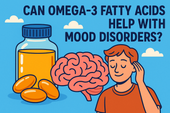
Can Omega-3 Fatty Acids Help with Mood Disorders?
Omega-3 fatty acids do more than support heart health — they can help balance mood, reduce depression, and calm anxiety. Discover how EPA and DHA nourish your brain, fight inflammation, and support emotional well-being from within. 🌊🧠
-

Vitamin D and Mood: The Sunshine Vitamin for Emotional Balance
Could the key to emotional balance be as simple as a little sunlight? Discover how vitamin D — the sunshine vitamin — influences serotonin, reduces inflammation, and helps you feel more positive and resilient year-round. ☀️💛
-

The Role of Magnesium in Reducing Irritability and Low Mood
Feeling on edge or emotionally drained? Magnesium could be the missing link between your body and your mood. Discover how this essential mineral reduces irritability, balances neurotransmitters, and helps your nervous system find calm again. 🌿✨
-
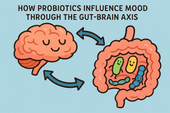
How Probiotics Influence Mood Through the Gut-Brain Axis
Discover how probiotics can do more than support your digestion—they can actually uplift your mood. This article explores the fascinating gut-brain axis and how balancing your gut bacteria through probiotics may help reduce anxiety, improve emotional stability, and support long-term mental well-being. 🌿🧠
-
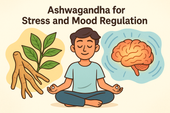
Ashwagandha for Stress and Mood Regulation
Discover how Ashwagandha, the powerful adaptogenic herb 🌿, helps your body manage stress and regulate mood. Learn how it balances cortisol, boosts GABA and serotonin, and supports emotional stability — helping you feel calm, focused, and resilient every day.
-
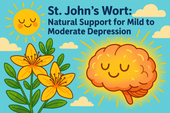
St. John’s Wort: Natural Support for Mild to Moderate Depression
Discover how St. John’s Wort, the “sunshine herb” 🌼, naturally supports mild to moderate depression. Learn how it boosts serotonin, balances mood, and promotes emotional resilience — with research showing its effectiveness compares to antidepressants, but with fewer side effects.
-
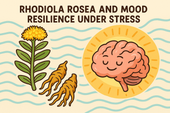
Rhodiola Rosea and Mood Resilience Under Stress
Discover how Rhodiola rosea helps your body adapt to stress 🌿. Learn how this powerful adaptogen balances cortisol, supports serotonin and dopamine, and strengthens emotional resilience — helping you stay calm, focused, and energized under pressure.
-

Chamomile and Lavender: Herbal Calm for Emotional Fluctuations
Discover how chamomile and lavender bring calm to emotional ups and downs 🌿. Learn how these two soothing herbs balance your nervous system, ease anxiety, and support restful sleep — naturally helping you find peace and emotional stability.
-
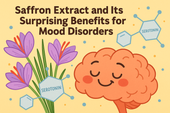
Saffron Extract and Its Surprising Benefits for Mood Disorders
Discover how saffron extract — the golden spice of joy 🌸 — can naturally support mood balance, ease anxiety, and lift mild depression. Learn what science says about its serotonin-boosting power, the ideal dosage, and how this ancient remedy compares to modern antidepressants.
-
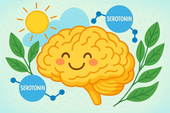
5-HTP and Serotonin: A Natural Path to Lifting Mood
Discover how 5-HTP naturally boosts serotonin 🌞 — the neurotransmitter behind mood, sleep, and emotional balance. Learn how this plant-derived compound supports happiness, reduces anxiety, and improves rest by helping your brain create more serotonin the gentle, natural way.
-
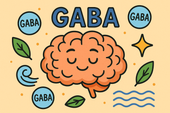
GABA Supplements for Reducing Anxiety and Mood Swings
Discover how GABA supplements can help reduce anxiety and balance mood naturally 🌿. Learn how this calming neurotransmitter works to quiet the mind, ease stress, and improve sleep — plus which nutrients and habits can boost your body’s own GABA production for long-term emotional stability.
-
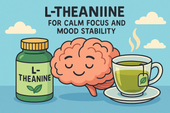
L-Theanine for Calm Focus and Mood Stability
Discover how L-theanine, the calming compound found in green tea 🍵, promotes focus, relaxation, and mood stability. Learn the science behind how it balances neurotransmitters, reduces stress hormones, and enhances clarity — helping you stay centered, calm, and productive without sedation.
-

N-Acetyl Cysteine (NAC) and Mood Disorders: What the Research Says
Learn how N-Acetyl Cysteine (NAC) supports brain health and mood balance 🧠. Discover how this antioxidant helps reduce oxidative stress, regulate glutamate, and improve emotional stability in depression, bipolar disorder, and anxiety — backed by cutting-edge psychiatric research.
-

Supplements for Bipolar Disorder: What May Support Stability
Discover the best supplements for bipolar disorder 🌿 that may support emotional stability and brain health. Learn how nutrients like omega-3s, magnesium, vitamin D, and NAC can help reduce inflammation, balance neurotransmitters, and complement traditional treatment safely.

















































